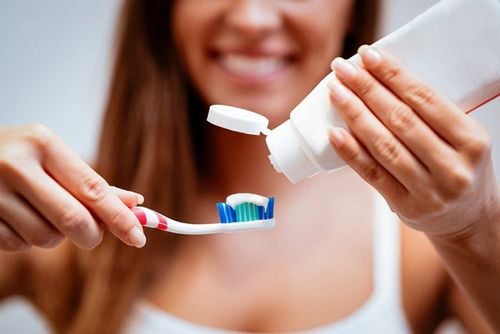This is an automatically translated article.
Gum disease, also known as periodontal disease, occurs when the gums become infected. With proper treatment early, gum disease will quickly improve. However, preventive measures are really important, especially the need to build good oral care habits. Besides, for gum disease in men, when the man is angry or the man is lonely, this can be a risk factor.
1. Why are angry, lonely men prone to gum disease?
If there is something that causes anger, it can drive a person crazy. And if faced with a feeling of loneliness, a person always wants to find a way to avoid others. If these conditions occur in men, scientists have proven that anger and social isolation are linked to gum disease in men.
This finding comes from a survey of more than 42,500 male health professionals, of which nearly 60% are dentists, about 20% are veterinarians, and the rest are pharmacists and ophthalmologists. doctors, orthopedists and orthopedic surgeons.
None of these men were found to have gum disease at the start of the study. However, during the 4-year prospective follow-up, 1,100 of the subjects reported experiencing at least one gum disease. Formally known as periodontitis, gum disease is an infection of the supporting tissues around the teeth. It is the main cause of tooth loss in adults.
Men who reported getting angry every day had a 43% higher risk of gum disease. Men who scored the highest on the anger scale assessment were 72 percent more likely to develop gum disease than men who scored lower.
Besides, if you have at least one close friend, your risk of gum disease will be 30% lower than that of colleagues without friends. At the same time, participating in regular religious activities reduces the risk of gum disease by up to 27%.
Accordingly, researchers at the Harvard School of Dental Medicine have concluded that having more positive social support - and learning how to express anger, ease loneliness - is better for patients. gums in men. In other words, angry men as well as lonely men need to take the initiative to clear their own negative psychological state early to contribute to healthier oral care.

Đàn ông giận dữ, cô đơn dễ mắc bệnh nướu răng
2. Other causes also cause gum disease
Anger and loneliness are newly discovered risk factors for gum disease in men. In most cases, plaque is the “classic” cause; However, there are a number of other causes of gum infection that are also often overlooked. Here are common reasons for gum disease and tips on how to prevent gum infections:
Plaque buildup
Plaque is a thick film of bacteria that forms on the gums and teeth that brushing teeth, flossing and gargling daily will remove effectively.
Besides, proactively improving oral care habits early and scheduling dental visits at least every six months are great steps to help reduce plaque.
Smoking and chewing tobacco
Smoking interferes with the normal function of gum tissue cells, leaving the oral cavity vulnerable to infections such as gum disease.
Furthermore, chewing tobacco isn't any better either. So, to actively prevent a number of health problems, including gum infections, right now is to quit smoking.
Side effects of some medications
Some medications can have the unwanted effect of reducing saliva production and flow, which can lead to dry mouth, which promotes bacteria that can spread easily than.
Nutritional deficiencies
It is difficult to fully consume all the vitamins needed by the body every day. However, not getting enough vitamin C can be especially harmful to gums.
In addition, a diet high in sugar and carbohydrates, low in water and vitamin C is the cause of gum problems. So, to help prevent gum disease, drink plenty of water and make sure to follow a balanced diet rich in vitamin C.
Crooked teeth
It is common for teeth to overlap, crook or rotate. see. However, a crowded oral cavity can be a breeding ground for gum disease, as misaligned teeth create more space where plaque can accumulate and damage teeth and gums.
During this time, extra care should be taken when brushing, using a soft, small-bristled toothbrush and flossing in inconspicuous areas to help prevent causes of gum infections such as plaque buildup.
Family history
If there is a history of gum disease in your family, take the initiative to see your dentist more often. It is this type of susceptibility that may put a person at an increased risk of developing an oral bacterial infection than others.
3. The relationship of gum disease in men with other health problems
Observations showed that periodontal disease was higher in men (56.4%) than in women (38.4%). This may be because gum disease in men is associated with other health problems.
Prostate disease
Prostate-specific antigen (PSA) is an enzyme made in the prostate gland that is normally secreted in very small amounts. However, when the prostate is inflamed, infected, or affected by cancer, PSA levels in the blood increase.
Research has shown that men with both periodontal disease and prostatitis have higher PSA levels than men with only one, suggesting that prostate health may be related to health periodontitis and vice versa.
Cardiovascular disease
The link between periodontal disease and cardiovascular disease has been confirmed. Thereby, when a man has periodontal disease can actually increase the risk of cardiovascular disease.
Both diseases are chronic inflammatory conditions. So, while men are already more likely than women to develop heart disease, maintaining periodontal health is another way to reduce this risk.
Sexual dysfunction
According to research, men with periodontal disease, especially those under 30 or over 70 years old, are at risk of impotence.
Chronic inflammation is blamed for the link between these two problems. It is the chemicals that mediate inflammation that can damage blood vessels, potentially leading to impotence.
Cancer
Research has found that men with a history of gum disease have a 14% higher risk of developing cancer than men with healthy gums.
Specifically, men with periodontal disease may have a 49% higher risk of kidney cancer than women, a 54% increased risk of pancreatic cancer, and a 30% higher risk of blood cancer.

Hút thuốc cản trở chức năng bình thường của các tế bào mô nướu, khiến khoang miệng dễ bị nhiễm
4. What to do when you have gum disease?
Gum disease is initially just a small infection, which can quickly improve with early detection and aggressive treatment. Accordingly, the most common symptoms of gum disease every person needs to know to visit the dentist:
Bad breath that persists despite cleaning Red and swollen gums Gums softening and bleeding Pain when chewing Back teeth At this time, depending on each patient and the severity of the disease, the dentist will choose an appropriate treatment, including:
Scaling: removing tartar and bacteria from the teeth and sides. below the gum line, reducing the risk of infection. Root planing: smoothing the surface of the tooth root, preventing the accumulation of plaque or bacteria from continuing to reside, reducing the inflammatory response. Antibiotics: topical or oral will help control the infection. Gum flap surgery: Small incisions are made in the gum so that part of the gum tissue can be lifted back. This intervention will expose the root of the tooth so that it can be planed and planed wider. It's easier to clean these areas and keep gums healthy. Soft tissue graft: because the gum line is retracted with loss of gum tissue, tissue grafting can help reduce further gum recession. Bone grafting: if gum disease has infiltrated the bone around the root of the tooth, you may need a bone graft to prevent tooth loss and keep the tooth in place. In a nutshell, gum disease is a condition in which the soft tissues in the mouth and gums become infected. The cause is usually due to plaque, bacteria that accumulate on the teeth due to not having good oral hygiene. Moreover, when men are angry or men are lonely, it also increases the risk of gum disease in men. Therefore, it is necessary to pay attention to psychological health problems in combination with good oral care habits to always keep a healthy, shiny teeth.
Please dial HOTLINE for more information or register for an appointment HERE. Download MyVinmec app to make appointments faster and to manage your bookings easily.
References: listerine.com, perio.org, webmd.com













